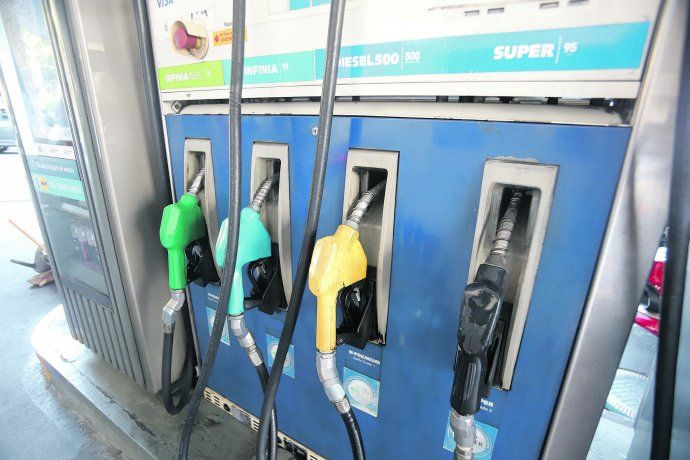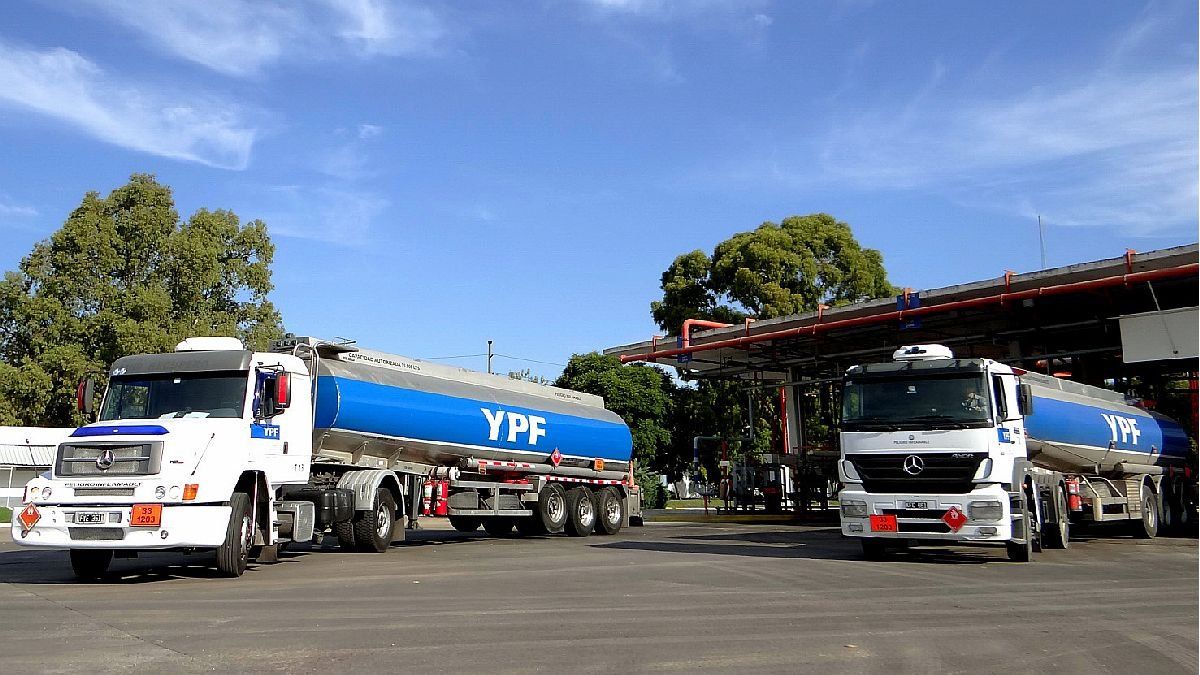According to company sources revealed to AmbitIn recent days, an increase in fuel demand of 6% over 2019 levels was detected, prior to the start of the pandemic. However, from YPF they assure that “No problems are registered” in the station network, which includes 1,600 establishments throughout the country.
At the same time, the entrepreneurs grouped in the Confederation of Hydrocarbons and Related Trade Entities of the Argentine Republic (Cecha) and the entities FECRA, CEGNC y AES They raised concerns about a combo of factors that puts their fueling supply at risk for Christmas, New Years and the rest of the 2022 summer season. “There are already shortages in cities across the country”, they assure.
Stationers Service Stations Fuel Pumps.jpg
FEC
Entrepreneurs denounce a “systemic crisis” that caused fuel shortages. “In recent weeks, this situation worsened and led to a large-scale shortage, which occurs in regions throughout the country, in cities with low urban density and threatens to hit Buenos Aires, Córdoba, Mendoza and the main tourist centers of Argentina. . Right on the eve of the holidays and the summer season”, They underlined.
As explained from Cecha, the crisis began with the implementation of quotas by the oil companies, which stopped delivering to the white flag stations to prioritize contracts with their own or those with the flag, which are those that are owned by a private sector and contract the supply with the oil companies.
The businessmen explained in a statement that the main one is the price freeze, where rates have remained unchanged since May, limiting profitability margins. They estimate that the delay in the pumps ranges from 12% to 20%. “A point was even reached where no profit is made when the fuel is sold to the stations, for which it is stored, quoted or allocated to certain stations, yes and others not”they argued.
The stationers recalled that premium fuels, diesel and diesel are imported, so they are paid in dollars and sold in pesos, an equation that is not beneficial either. “The lack of product to sell makes the stations have more and more problems in reaching the point of equilibrium, that is, the minimum volume of cubic meters of fuel that must be dispatched in a month to close without losses”, they indicated, and reiterated that today 52% of the stations cannot sell the 315,000 m3 that are needed to come out tied and “They end in red.”
The other big concern in the sector is the lack of diesel for the agricultural sector, which is on the eve of the thick harvest and still does not have a guaranteed supply to carry out these works.
Against this background, YPF launched a special logistics operation for the New Year’s Eve Parties, which allows it to guarantee supply. The plan foresees the departure of 70 additional trucks with fuel and optimization of gasoline delivery, together with more security controls at the stations. YPF trucks have a maximum load capacity of up to 43,000 liters, which means a reinforcement of more than 3 million liters of fuel.
From the Federation of Fuel Entities (FEC), which heads Julius alonso, a leader related to the union of Carlos Acuna, denied a generalized shortage, but admitted shortages in the border service stations and in the so-called “white” or without flag. “The lack in those places is because the price of fuel in Argentina is retracted by 20% and now that the traffic at the border crossings has been reactivated, from the bordering countries they cross and empty the tanks “, said Alonso, as reproduced by El Día.
JETS.jpg

“A service station that sold 5,000 liters per day went on to sell 30,000 liters and there is no truck that can solve that problem”added the head of FEC, who maintains a feud with the United Vending Board for the signing of a bulky joint for station and garage workers, which the rest of the entities cannot face.
The head of the FEC added that the shortage is linked to the value of naphtha in neighboring countries. “In Uruguay it is $ 300 and here it is $ 95, the stations near the border sell six times more and now they cannot be supplied”, he assured.
From Cecha, the confederation that brings together 5,000 stations and to provincial entities and federations throughout the country, they sent notes asking to hold meetings with the Minister of Productive Development, Matias Kulfas, the Secretary of Energy, Dario Martinez, and the oil companies to try to find a solution that allows the pumps to be replenished.
“In the coming weeks there will be more movement due to tourism and festivals, which undoubtedly is aggravating the picture of scarcity that we see today in various urban centers. Today we cannot guarantee that there will be product for the holidays and for the beginning of the season ”, they affirmed from Cecha.
Source From: Ambito
David William is a talented author who has made a name for himself in the world of writing. He is a professional author who writes on a wide range of topics, from general interest to opinion news. David is currently working as a writer at 24 hours worlds where he brings his unique perspective and in-depth research to his articles, making them both informative and engaging.




